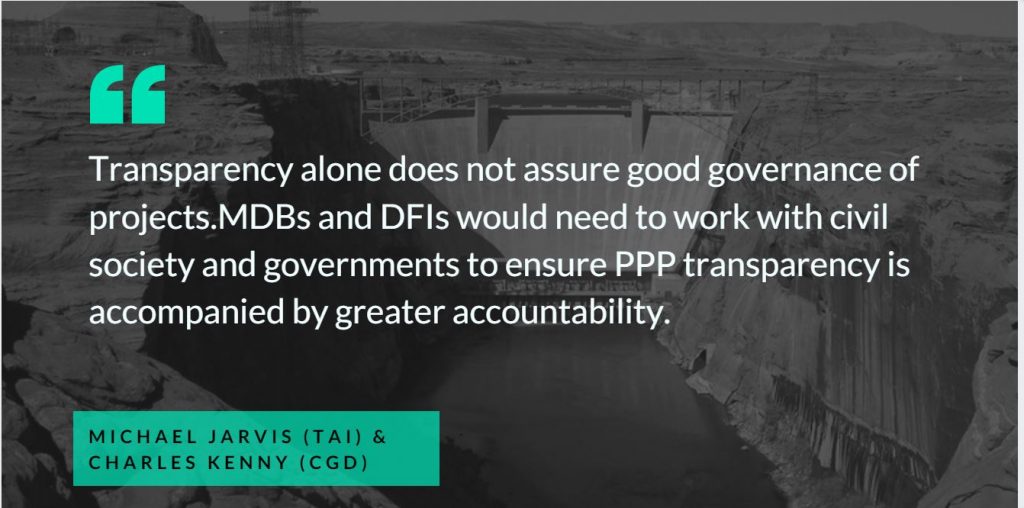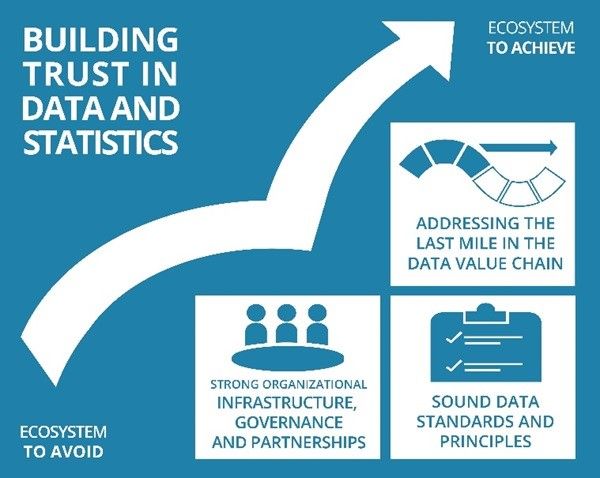In case you missed it…
Can a reality TV show discourage corruption? So asks The Economist in reference to Accountability Lab’s Integrity Idol, a reality tv show celebrating honest civil servants that started in Nepal in 2014 and now spread to Pakistan and African countries. We should be anticipating more such initiatives in 2018 – African Anti-Corruption Year. Fifteen years after brokering the AU Convention on Preventing and Combatting Corruption, heads of state gathered at the 30th African Union Summit made a call for governments to focus on a collective agreement to tackle corruption. In a sign of the times, they singled out learning from China’s anti-corruption experience. Max Bearak’s investigation of corruption stalling economic development at 13,000 feet in Afghanistan could provide additional insights – he asks what would it take to mitigate – or reverse- the systemic incentives for corruption?
TAI members and staff are in Nigeria this week digging deep on data for anti-corruption purposes (blogs to come). It’s a context where one cannot ignore the problems in the extractives sector, so we were pleased to watch the video [below] from the Natural Resource Governance Institute on how to improve transparency and deter corruption in commodity trading. There is also a 5-minute video on how to tackle grand corruption in natural resources if you’re short on time. You might also want to check out this brief on in-kind payments oil and gas companies provide to national oil companies for the right to extract resources that are too often opaque. Perhaps Nigeria’s new Petroleum Regulatory Commission can take a look at the issue – one new player from the unbundling of the national oil company under the recently passed Petroleum Industry Governance Bill. They may also want to share input to the OECD’s Guiding Principles for Durable Extractives Contracts, which has been released for public comments.
Meanwhile, Heinrich Böll Foundation and the European Center for Constitutional and Human Rights published a report examining how human rights are undermined in natural resource and environment advocacy work.
Which OECD country is strongest on civic participation measures? Australia tops the list while Chile are at the other extreme in the Better Life Index. Closing civic space is a dynamic being felt in OECD and non-OECD contexts alike. In many parts of the EU, civil society is under threat according to a study by the EU Agency for Fundamental Rights. In Hungary, a new set of laws called “Stop Soros” aims to tax NGOs assisting “illegal migration” and receiving foreign funding. How are activists pushing back? The International Journal of Human Rights released a special edition on reclaiming civic space comprising multimedia content by and for activists.
Talking of Soros, both the US President and tech giants may have wanted a stop-Soros campaign of their own in Davos in light of criticisms of their roles in exacerbating challenges for open societies (read Soros’ full speech here). If you haven’t had time to follow the Davos meetings, here are the highlights (including blockchain and smart data).
Our numbers of the week? 20 and 40. The World Bank and the UNODC estimate that annually, between USD20-USD40 billion are stolen from public treasuries. Are efforts to recover funds effective? Susan Hawley suggests it’s time for a cost-benefit analysis of the Global Forum on Asset Recovery.
Fearing “The Rise of Kleptocracy?” Then you will likely want to read the January 2018 Journal of Democracy dedicated to the theme. Just move fast as the articles move behind a paywall very soon. You may also be inspired to listen to the podcast featuring Netflix CEO Reed Hastings and Ford Foundation President Darren Walker on the role of philanthropy in protecting, not threatening democracy.
The TAI team are taking a course on blockchain in development right now (with healthy skepticism), but the risk that hype is getting ahead of reality seems to be growing. David Lehr and Paul Lamb discuss five emerging uses for the development sector while Nikki Brand from Stanford is much more ambitious. She’s seeking to create the canonical list of blockchain development projects – check out and add to it here.
Many non-profit initiatives focus on awareness-raising but Ann Christiano and Annie Neimand argue that to move the needle on social issues we care about, one should move beyond disseminating information. How do you translate awareness into action? Authors provide four elements of a more strategic approach to public interest communications. Maybe something to keep in mind if applying to participate in the International Open Data Day on March 3. Mini-grants are available (see Calls section below).
Talking of data, three different takes on getting to effectiveness this week. First, a call to action for making data journalism a civic duty, Shaida Badiee is seeking compelling session ideas for the 2018 World Data Forum around building trust in data and statistics, and Anna Fisher-Pinkert offers an always timely reminder on how data-driven research too often fails to translate into sound public policy decision making.

Photo: UN Data Forum
More learning materials? Making All Voices Count released its final learning synthesis covering 5 key lessons in supporting innovation and use of technologies in accountability initiatives. They also released 14 key messages on the role of technology to enable civic action towards accountable governance outcomes. MIT GovLab also released its MAVC research report highlighting civic leadership training increased political participant and engagement among community leaders plus some government responsiveness.
How do you encourage constructive feedback from grantees? Siegel Family Endowment teamed up with Feedback Labs. Check out this short read on how they did it.
TAI spotlight
- Five Steps the EU Must Take to Protect Civil Society | Open Society Foundations – Over the past few years, some EU governments have introduced laws undermining civil society. Kersty McCourt and Natacha Kazatchkine offer five steps to defend civil society organizations.
- Ford Foundation Appoints Hilary Pennington as Executive Vice President | Ford Foundation – Get to know Ford Foundation’s first Executive Vice President. Also, check out this interview for her views on future opportunities for Ford and how the philanthropy influences traditional foundation giving.
- New Grant Supports CMSI’sWork in Civic Storytelling and Social Justice | MacArthur Foundation – MacArthur Foundation’s support for Center for Media and Social Impact at American University seeks to tap into the potential of media and storytelling for social justice and equity. We’re excited to see how TAI’s upcoming work on results stories could contribute in this field.
- It’s Time for a Code of Conduct on Transparency for Financiers Backing PPPs | TAI – Michael Jarvis (TAI) and Charles Kenny (Center for Global Development) make the case for why financiers of PPPs should lead efforts towards transparency in the sector.

Of potential interest…
- Opinion: Once Upon a Statistic — Why We’re Calling for Gender Data Impact Stories – New project seeks to document stories demonstrating how data improve outcomes
- Data Protection: Why It Matters and How to Protect It – Estelle Masse discusses what is data protection and why we need data protection laws
- Creating a Data Protection Framework: A Do’s and Don’ts Guide for Lawmakers – Access Now documents lessons from its experience in crafting the EU General Data Protection Regulation
- Georgia Mid-Term Report 2016-2018 – For Public Comment – Georgia invites the public to comment on its Independent Reporting Mechanism report. The main finding? Many commitments were not relevant for opening government.
- Telling Your Big Data Stories with Data Visualisation – Key takeaways from a workshop organized by Pulse Lab Jakarta on storytelling and data visualization
- Inequality Gap Widens as 42 People Hold Same Wealth as 3.7bn Poorest – Oxfam’s latest data show 82% of global wealth in 2017 concentrated in wealthy 1% of global population

- Want to Organize an Event on International Open Data Day? – February 4
- Natural Resources for Sustainable Development: The Fundamentals of Oil, Gas and Mining Governance (facilitated MOOC) – February 5
- Gender Data Impact: Call for Stories – March 8
- Join the OGP Local Program: Call for Expressions of Interest – March 9
- ICFJ Knight Fellow, Data Journalism, Central/Eastern Europe

- A Fresh Take on the Funder-Grantee Power Dynamic: A Conversation On Supporting High Performance (webinar) – January 30
- Decaying Institutions: How Corruption Undermines Democracy in Nigeria – January 30 (Washington DC, USA)
- As American As Apple Pie? The Future of the Open Web in the US and Abroad – January 30 (Washington, DC, USA)
- Advocacy Evaluation: Techniques to Learn From and Improve Your Advocacy Work – January 31 (Washington DC, USA)
- Open Budget Survey 2017 Release Event – January 31, Washington, DC; February 6, 2018 London, UK
- Blockchain for International Development (online course) – January 22 -February 16
- On Think Tanks Conference – Feb 13-18 (London, UK)
- Staying Connected (with grantees and their beneficiaries)- February 13, 2018 (webinar)
- Taxation and SDGs – First Global Conference of the Platform for Collaboration on Tax – Feb 14-16 (New York)
- Data on Purpose: The Promise and Pitfalls of the Connected World – February 15-16 (Stanford, CA)
- Conference on Fairness, Accountability and Transparency (in tech systems)– February 23-24 (New York, USA)
- Open Data Day 2018 – March 3 (Global)
- Innovations in Participatory Democracy Conference – March 8-10 (Phoenix, Arizona, USA)
- Collective Impact Convening– April 3-5, 2018 (Austin, TX)
- A Return to ‘Governance in Dark Times’? Creating Spaces for Citizen Dialogue, Encouraging Engagement in Public Life, and Ensuring Government Transparency and Accountability – April 12-14 (Orlando, Florida, USA)
- TicTec 2018: The Impacts of Civic Technology Conference– April 18-19 (Lisbon, Portugal)
- Grantmakers for Effective Organizations National Conference – April 30 – May 2, 2018 (San Francisco, CA)
- RightsCon (human rights in the digital age) – May 16 – 18 (Toronto, Canada)
- OGP Global Summit 2018 – July 17- July 19 (Tbilisi, Georgia)
- The Future is Open: 5th International Open Data Conference – September 20-21, Buenos Aires
- International Anti-Corruption Conference – October 22-24 (Copenhagen)
